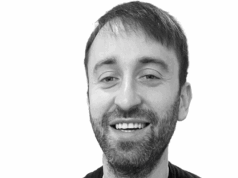
Newly-installed American College of Surgeons (ACS) president Julie A Freischlag (Wake Forest Baptist Health, Wake Forest School of Medicine, Winston-Salem and Atrium Health Enterprise, USA) called for her fellow surgeons to apply the principles that underpin enhanced recovery as medicine begins to emerge from the COVID-19 pandemic.
The former Society for Vascular Surgery (SVS) president made the plea during her presidential address before the 2021 ACS Clinical Congress (23–27 October, virtual).
“As leaders and as surgeons, COVID-19 has brought a storm of challenges we never could have imagined—from delays in elective procedures to redeployment of staff, financial strain and new safety practices,” said Freischlag. “There also have been silver linings where we have seen the most amazing acts of bravery and teams come together stronger than ever,” added the new ACS president.
Titling her address “#SurgeonsSowingHope,” she said she planned to encourage many fellow ACS leaders to create either a one-minute podcast, video or social media post using the hashtag in order to share enhanced recovery thoughts as we go forward beyond the pandemic during the year of her presidency.
“Hope for improved health is a driver behind enhanced recovery after surgery—enhanced in its various forms means to improve the quality of, or strength of, to make better, and to educate and enlighten,” she told ACS Clinical Congress attendees. “Its very essence is captured by this care approach, which aims to medically optimise the health and safety of patients before surgery on day one and throughout the continuum of care.”
Enhanced recovery after surgery has proven benefits, Freischlag continued. “It is associated with improved patient outcomes and safety, reduced hospital stays and readmissions, shorter recovery times, and lower costs. Through a combination of evidence-based guidelines based on patient education and engagement, multidisciplinary teamwork, screening tools, nurse navigation and patient champions, the whole patient is supported throughout the surgery journey and beyond through recovery.”
Freischlag pointed to two recent studies published in the Journal of Vascular Surgery as examples of the benefits that can come from enhanced recovery applications.
Among lower-extremity bypass patients in an enhanced recovery programme, there was a decreased length of stay of 8.32 vs. 11.14 days and reduced variable costs of US$13,208 vs. US$18,777 compared to those who were not.
And in a study of patients undergoing abdominal aortic aneurysm (AAA) repair, enhanced recovery protocol was associated with a reduced time to discharge of five days, compared to the 8.4 days among patients undergoing standard open surgery.
“Both of these studies have what I consider the most important element of enhanced care: a multidisciplinary team at the core,” said Freischlag. “Enhanced recovery is a thing we can apply on an even larger scale as we begin to emerge from the pandemic. Many of the same principles that underlie this approach to optimisation—collaboration, compassion, inclusion, engagement and innovation—can guide us as we heal, recover and lean forward.”
Freischlag then asked: What has COVID-19 done for us? The list is not long, she said, but silver linings include enhanced communication capabilities, telehealth advances and improved work flexibility. During the pandemic period, the medical profession has seen reports of 52% of surgeons suffering burnout, 41% of adults delaying or avoiding medical care and 34% of COVID-19 deaths among African American patients, Freischlag noted. She contended the key to recovery might lie in the values that underpin enhanced recovery—like compassion, inclusion and innovation—sharing ways they have been put into action.
“The pandemic created a paradigm shift, pushing us to innovate quickly,” she said. “Telehealth emerged as a safe, convenient and lower-cost alternative to in-person visits, while still allowing us to engage with and include patients in their care.”
Freischlag shared how a racial equity task force was started at her hospital during the pandemic, bringing together leaders, staff, students and community members focused on “positive change.” At the heart of enhanced caring is compassion, she said, with studies pointing toward many associated benefits, including improved patient outcomes, reduced costs, time savings and lower levels of physician burnout.
Research shows that more than half of physicians believe they do not have time for compassion, Freischlag continued. Yet, the same findings show that “it takes only 40 seconds to create a meaningful connection with a patient,” she said. “This made me think, ‘What can I do in just 40 seconds to make a compassionate connection and difference?’ For me, it’s treating patients how I would want my own family treated, and asking ‘How do you feel?’ and ‘What are you hoping for?’”
Enhanced care and recovery necessitate “true teamwork based on communication, trust, transparency and opportunity,” Freischlag concluded. “When we open opportunity and empower others, our teams become stronger, and together we go further.” She also encouraged self-care. “Surgery is a rewarding but demanding profession, and, as a recent New York Times article shared, we need to find ways to flourish. This can take many forms: making new connections, celebrating small wins, doing good deeds and practicing gratitude.”













